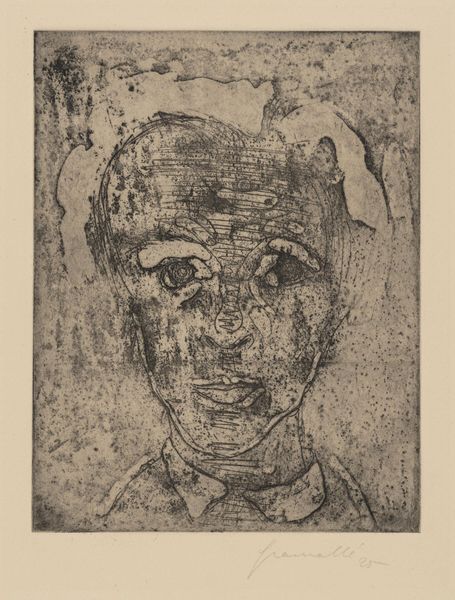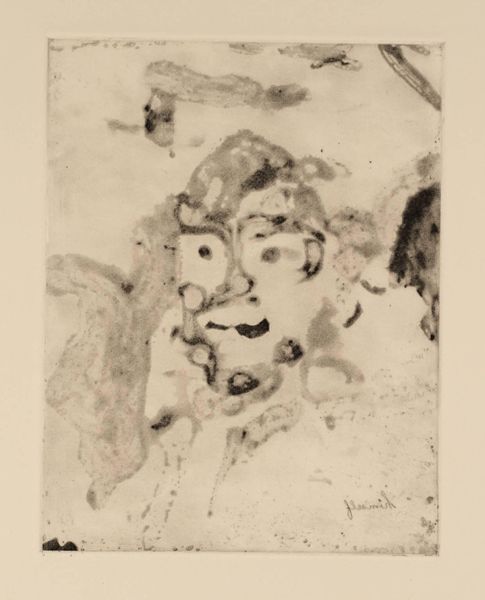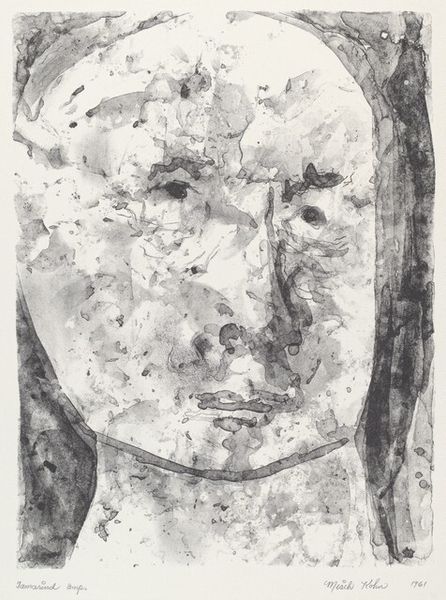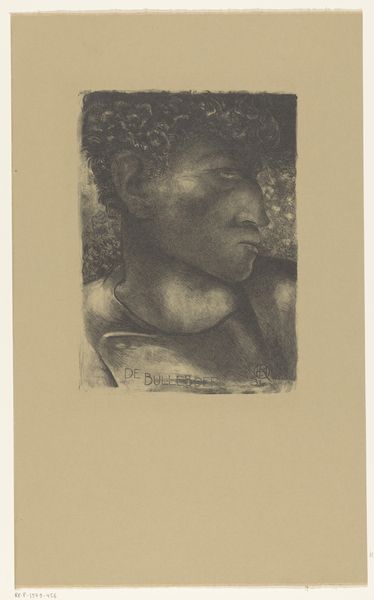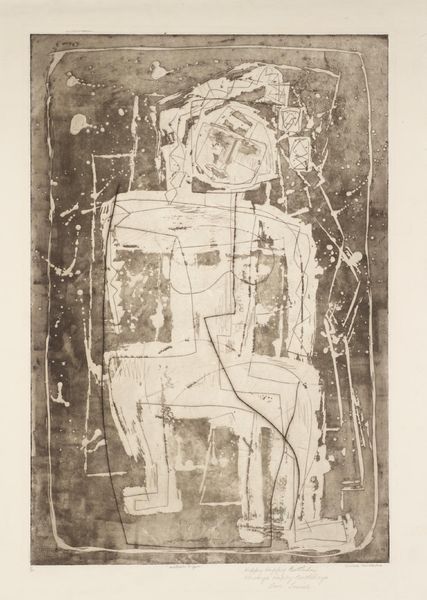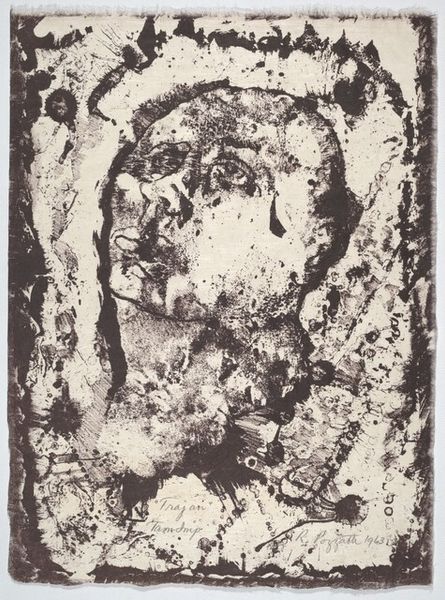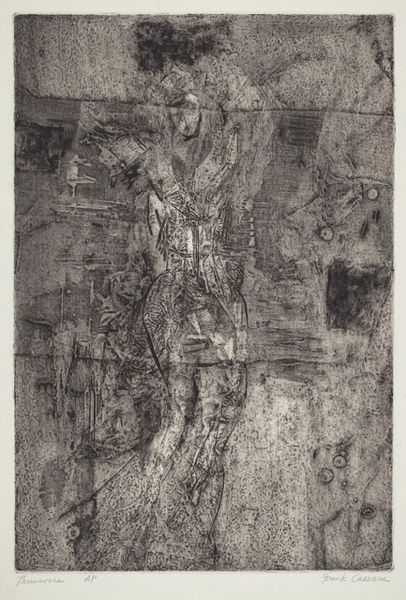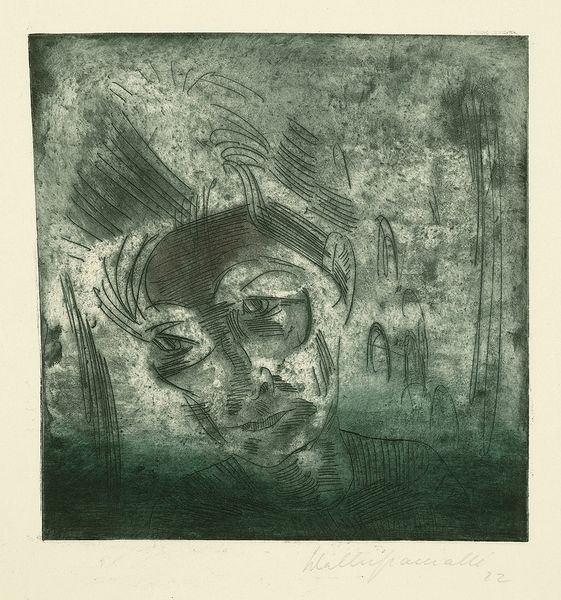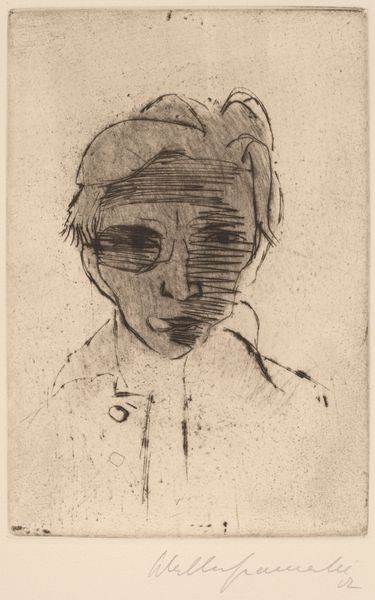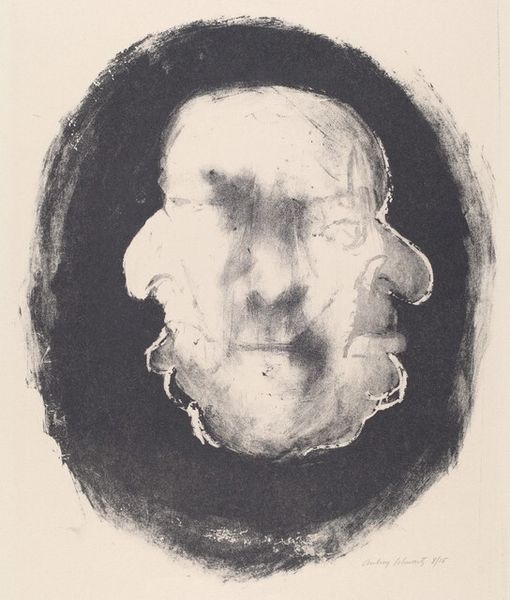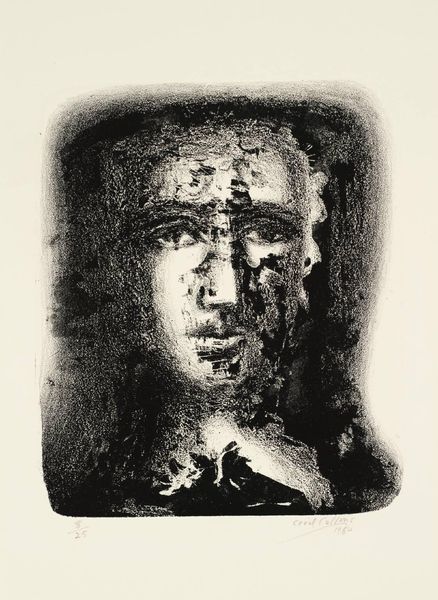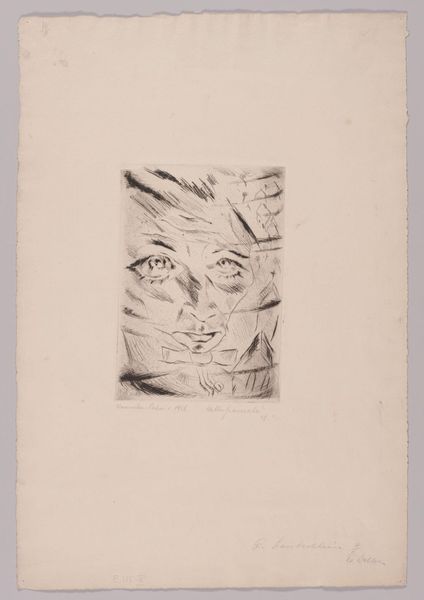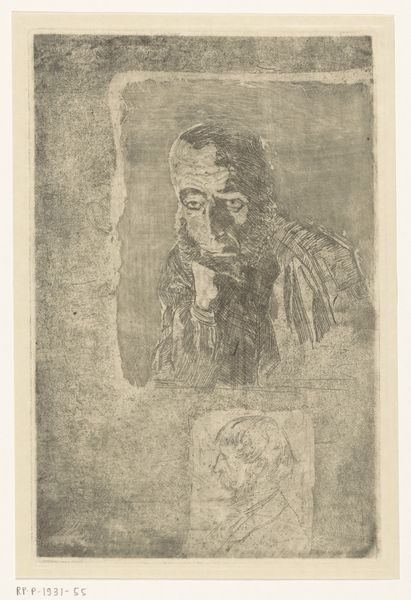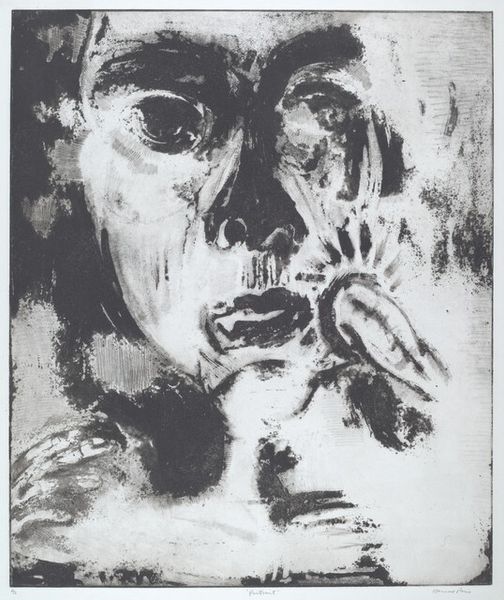
Dimensions: image: 250 x 201 mm
Copyright: © The estate of Barry Flanagan, courtesy Plubronze Ltd | CC-BY-NC-ND 4.0 DEED, Photo: Tate
Curator: Looking at Barry Flanagan's "Self-Portrait," I'm struck by its ethereal quality. It's like a figure emerging from a mist. Editor: Yes, the printmaking process itself contributes to that sense. The materiality here, the layering of ink and the paper's texture, are crucial. How do such intimate processes impact the wider art world? Curator: Absolutely. Printmaking democratized art in a way, making images more accessible. Flanagan, though, seems to wrestle with the medium, pushing against its reproductive capabilities to create something unique. Editor: It's a raw image, defying the pristine finish we often associate with "high art." The labor is visible, almost palpable. The figure is less a portrait and more a record of process, highlighting the physical act of creation. Curator: So, what does this say about the role of self-portraiture within the broader history of art and the marketplace? Editor: The self-portrait becomes a commodity, yet Flanagan subverts this by focusing on the making. It's a challenge to the traditional boundaries of art and labor, don't you think? Curator: Indeed. This piece offers a fascinating peek into the relationship between artist, process, and the art world's expectations. Editor: A perfect encapsulation of the tensions inherent in art production!
